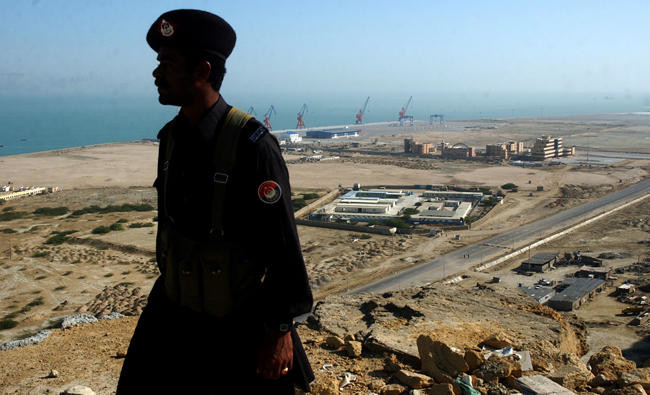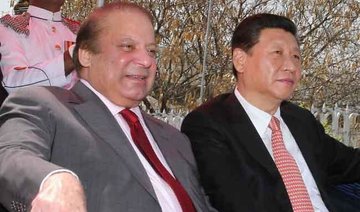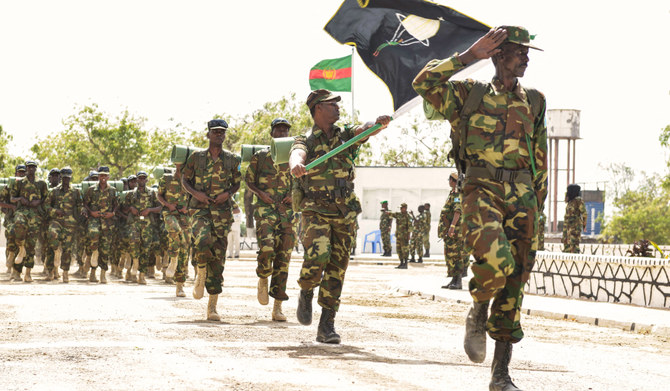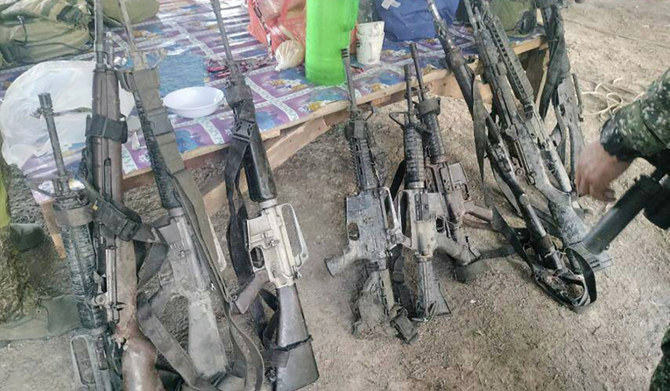ISLAMABAD: China and Pakistan have agreed to move ahead on the segment of China’s One Belt One Road (OBOR) initiative which runs through Pakistan. The China-Pakistan Economic Corridor (CPEC) is expected to be completed by 2030 at a cost of around $56 billion.
The long-term plan for the CPEC was approved at the Joint Cooperation Committee (JCC) meeting held in Islamabad on Tuesday. On Wednesday, Prime Minister Shahid Khaqan Abbasi inaugurated the East Bay Expressway of Gwadar port at a groundbreaking ceremony in which he hailed the efforts of Chinese and local authorities in building “a vital link” between the commercial hub city of Karachi and Gwadar, and listed a number of other developments underway in the town.
“The Rs. 170 billion ($1.6 billion) development of Gwadar is on track,” he said. “I am very confident that these projects will transform Gwadar — a small fishing town — into a city of global importance.”
Abbasi addressed concerns raised by Baluchistan’s administration about energy and water supplies, stressing that they were the responsibility of the government and not China. He said the issues would soon be resolved.
Abbasi also said that the benefits of the ongoing projects should be passed on to the local people and that the concerned authorities should “train, rehabilitate and employ” them.
The JCC meeting was led by Ahsan Iqbal, Pakistan’s minister of planning and development, and Wang Xiatao, vice chairman of China’s National Development and Reform Commission. An estimated 150 senior representatives from both nations attended the meeting.
Talking to the media after the meeting, Iqbal explained that the plans for CPEC include Special Economic Zones spread across four provinces, including Gilgit Baltistan, which will be vetted by experts appointed by China, since the two countries had failed to reach an agreement on how that plan would be implemented.
He added that a railway expansion project in Karachi was approved and that China would help enhance information and agriculture technology in Pakistan.
The JCC also discussed the construction of Gwadar airport — a priority for Pakistan — which is expected to begin in 2018.
CPEC will start in Khunjerab Pass in the northern areas bordering China and travel through Pakistan down to Baluchistan’s deep seaport city of Gwadar.
Iqbal said the next phase of swift industrialization will pave the way for opportunities for Pakistanis in the Special Economic Zones, adding that an estimated $27 billion worth of CPEC projects have already been approved. Pakistan has urged China to speed up its approval process for infrastructure projects and to lend further money at low-interest rates for CPEC development.
Meanwhile, China’s Ambassador to Pakistan Yao Jing met Pakistan Army Chief Gen. Qamar Javed Bajwa to discuss regional security matters pertaining to Pak-Afghan border management and counter-terrorism, according to a statement by Inter Services Public Relations (ISPR) on Tuesday. The Baluchistan region through which the corridor runs has been plagued by insurgents, and although security forces have gained traction in controlling the situation, incidents still occur.
“They are also concerned with Pakistan’s relation with Afghanistan since China has stakes in Afghanistan. China wants safeguards in place to ensure CPEC and wants the two countries to resolve matters which could affect the project,” Dr. Manzoor Khan Afridi, head of the Department of Politics and International Relations at the International Islamic University, told Arab News.
Financial terms are also a sticking point between China and Pakistan. “Financial management of all these CPEC projects must be crystal clear without any malpractice,” Afridi explained. He added this was particularly relevant at the moment, considering Pakistan’s political instability in light of the ongoing graft cases against the country’s finance minister and former prime minister and his family.
On the other hand, he continued, Pakistan has its own reservations about the terms China is demanding for funding the projects.
China’s desire to use its own currency in the free zone of Gwadar wasn’t well received by Pakistan, which rejected the demand saying it compromises economic sovereignty, according to local media reports.
“Pakistan wants the rupee to be utilized by China,” Afridi said. “However, without further consultation and research, it wouldn’t be wise to introduce each other’s currency across their borders yet.”



























